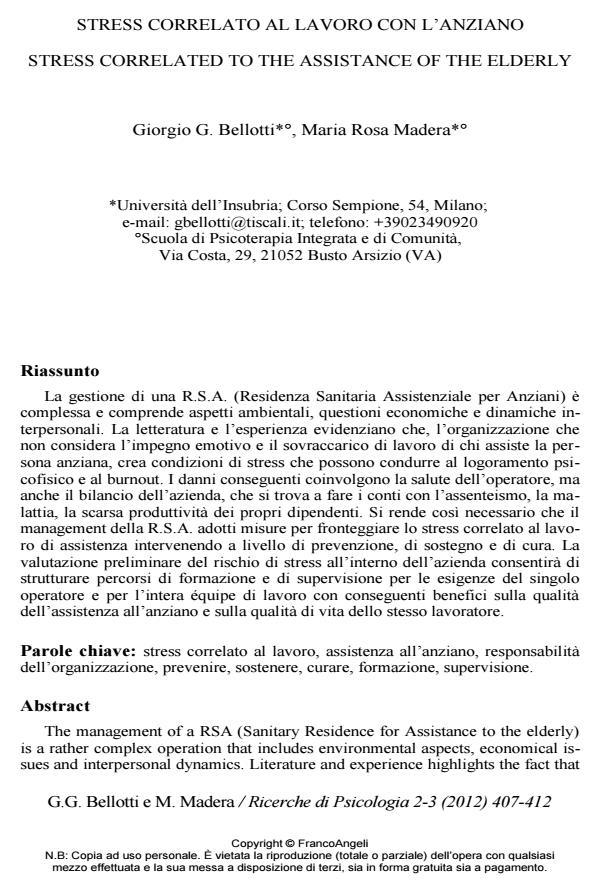Stress correlated to the assistance of the elderly
Journal title RICERCHE DI PSICOLOGIA
Author/s Giorgio G. Bellotti, Maria Rosa Madera
Publishing Year 2013 Issue 2012/2-3
Language Italian Pages 6 P. 407-412 File size 162 KB
DOI 10.3280/RIP2012-002017
DOI is like a bar code for intellectual property: to have more infomation
click here
Below, you can see the article first page
If you want to buy this article in PDF format, you can do it, following the instructions to buy download credits

FrancoAngeli is member of Publishers International Linking Association, Inc (PILA), a not-for-profit association which run the CrossRef service enabling links to and from online scholarly content.
The management of a RSA (Sanitary Residence for Assistance to the elderly) is a rather complex operation that includes environmental aspects, economical issues and interpersonal dynamics. Literature and experience highlights the fact that the Organization that overlooks the emotional commitment and the work overload of the person assisting the elderly creates stress conditions that may lead to psycophysical exaustion and burnout. The ensuing damages affect the health of the operator but as well the budget of the Company that is required to handle personnel shortage due to sickness and low productivity of its personnel. It thus become necessary for the management of the RSA to implement measures to handle the stress connected to the assistance work by acting at a prevention level of support and care. The preliminary evaluation of the stress risk within the Company will allow the restructuring of formation and supervision paths according to the necessities of the single operator and of the working team with resulting benefits for the quality of the assistance of the elderly and the quality of life of the operator itself.
Keywords: Stress work correlated, assistance to the elderly, responsibility of the organization, prevention, support and care, formation, supervision.
Giorgio G. Bellotti, Maria Rosa Madera, Stress correlato al lavoro con l’anziano in "RICERCHE DI PSICOLOGIA " 2-3/2012, pp 407-412, DOI: 10.3280/RIP2012-002017